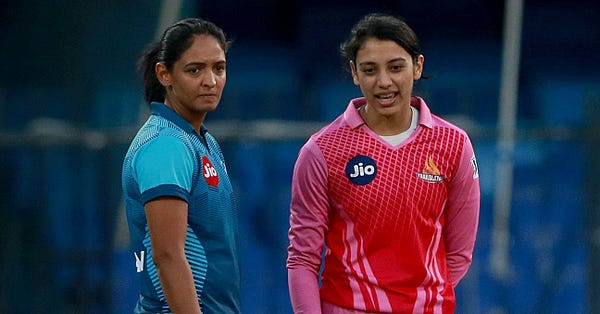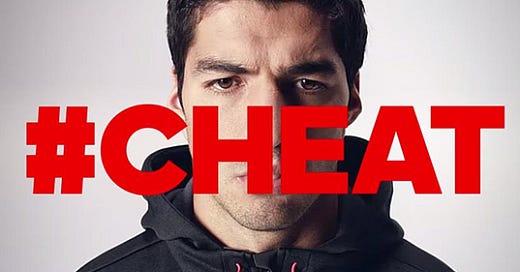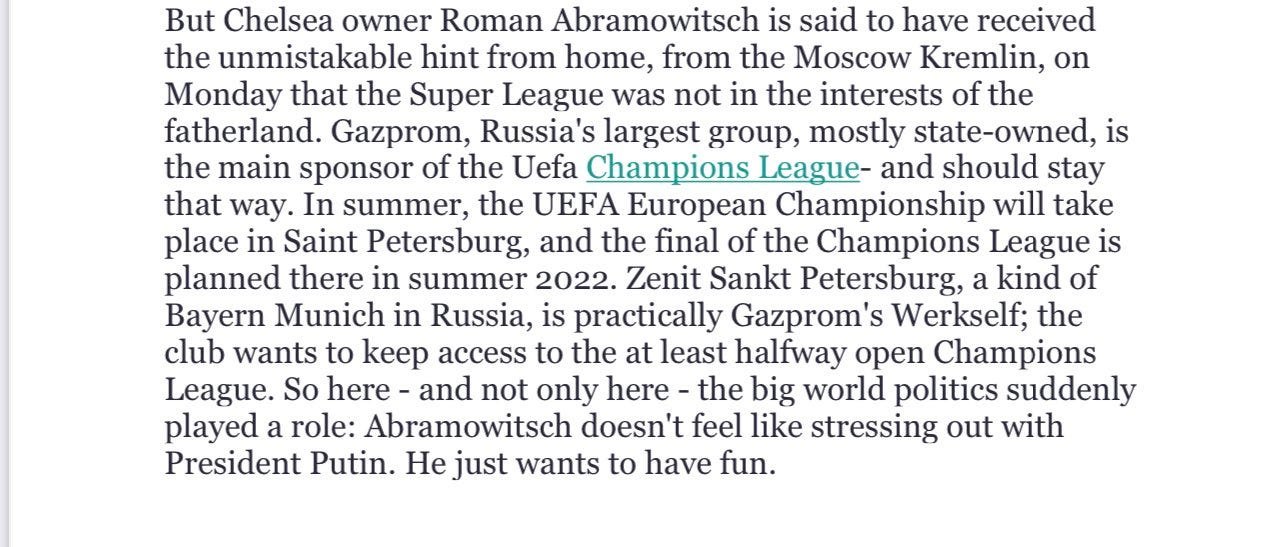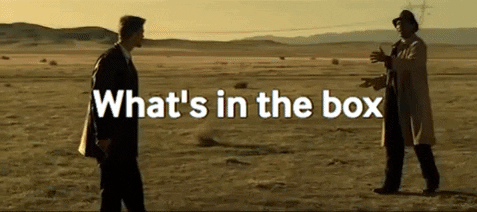16 Punishment tropes; Ceferin’s ‘Use it or lose it’ clause; Boycott-talk is back; Do you trust p/e with women's sport? Claire Enders was right about BT; Top 10 sports themed TV ads
The newsletter of the podcast
Punishment tropes #1 Super League
Is that it, do they just get to walk away as if nothing happened? (Spoiler: probably).
There’s a distinct Treaty of Versailles vibe to the demands for reparations. And that didn’t end well.
Sanctions are a blunt instrument.The hard question is how UEFA can effectively punish the 12 ownership groups and the executives, rather than the players and by extension the fans.
Be careful what you wish for. Any penalty imposed on the 12 biggest, most marketable clubs in the Champions League, brings the Versailles risk of lingering resentment fuelling Super League 2.0, which will have concessions to relegation culture and better PR.
Power comes with a ‘use it or lose it’ clause. Aleksander Ceferin’s leadership in the white heat of that lost weekend (and Monday morning) has earned him political capital and organisational leverage. But this will dissipate, so his time is now.
Who am I? Who are we? Where are we going? The three basic questions of leadership which Ceferin must now answer. Paradoxically, he is now under more pressure than at any moment in his tenure in charge of UEFA. It’s a rare moment where we can legitimately ask what he stands for. The day to day job of running major sports bodies is the tedious grunt work of pushing minor reforms through committee, and then over claiming their significance in the court of public opinion. I’m guessing there’s a part of Ceferin that wants to go full Martin Luther King and lay the grounding for real, lasting changes that define his tenure at the top.
But consequences have an annoying habit of being unintended. By making changes that feel right today, Ceferin risks blowing up the whole thing, by further alienating the 12 and causing the next breakaway. The basic truth that caused the Super League - a small number of teams are more valuable to the collective than most of the others - remains in place. Overplay his hand now and Ceferin could go down in history as the man who really did change football forever. (This hereby marks the end of the Versailles Treaty analogy).
Punishment tropes #2 China
Are you Moscow ‘80 or Beijing ‘08? The Uighur Muslim camps; the vicious repression of Hong Kong; human rights abuses; cyber warfare…as the geo-political heat is turned up on China, an old question is returning to sports business conversation. Boycott-talk is back in fashion.
How to punish China’s government not China’s people. Alexander Ceferin’s UEFA dilemma - ‘hurt the owner not the fan’, above - is amplified a thousand times: President Xi and the China Communist Party is the problem, not the people of China. But how do you hurt one and not the other?
Sporting boycotts are a proxy war. Rather than a real one, or heaven forbid, a trade one. The lower stakes are why politicians like them. Sportswashing works both ways.
Dictators seem to care about sport. Note how interested in football Vladimir Putin was last week. (HT to Tariq Panja for the spot). One reading of this exchange is that sport is an effective way to get the attention of thuggish dictators.
Who’s being isolated here? Western trade embargoes are a huge risk given the centrality of China’s economic power. The Economist suggests it is the major goods trading partner of 64 countries around the world, compared to just 38 for America. By attempting to isolate China, America and Europe risk alienating themselves.
Business will continue whether the 2022 Olympics happen or not. When it comes to difficult regimes, big business is amoral. Despite the current regime’s actions, this year has seen famous Western companies continue to pile in to China, which has attracted $163billion of new multinational investment in just this past year, more inward money flows than any other country.
Sport is a global business (obvs) and so is also amoral. But it also claims a higher moral purpose, which paradoxically, it trades on for commercial return. This leaves it more vulnerable to accusations of hypocrisy.
When does engagement become appeasement? That’s the big question President Biden and the G7 get to solve. It’ll likely include long term and difficult choices about digital and mobile infrastructure, the future of the cloud, energy independence and supply chain protectionism. There are no easy wins in that lot. So they’ll probably boycott the Games instead.
Boycotts don’t work, but that’s not the point. The US boycott of Moscow in 1980 didn’t bring down the Berlin Wall. And the 2008 Beijing Olympics didn’t bring China in to the global fold of liberal democracies. So beyond the virtue signals and self aggrandising of boycott-talk, we’re left with real life, which is messy and resists simple answers. Annoying innit.
The Super League Box Set
The Unofficial Breakaway Collection
Alex Fynn (UP Pod #39) wrote the blueprint subsequently used by Silvio Berlusconi to drive through the initial UEFA Champions League. This is the story of how laudable aspiration met football realpolitik.
Craig Thompson (UP Pod #45), was a founding member of TEAM Marketing and one of the architects for the Champions League commercial model.
Project Big Picture (UP Pod #117) was a hint of what was to come.
Phil Carling (UP Pod #118) tracks the evolution of the breakaway leagues, framing the big prize in relation to the global advertising market.
Super League WTF (UP Pod #158) goes in to the fall out of the recent shenanigans, the anger of club sponsors and dissects the worst PR campaign in sports history.
Can P/E be trusted with women’s sport?
This week’s podcast was episode 2 of ReThinking Sport, our series created with Portas Consulting and focused on the strategic challenges facing women’s sport with guests Kelly Simmons MBE, The FA’s Director of the Women’s Professional Game, Patrick Massey of Portas and W Series CEO and former corporate financier Catherine Bond Muir.
Here’s Bond Muir on sport’s current private equity dalliance with a particular reference to women’s focused properties.
The entry of large private equity companies is a potential threat to female sport. If governing bodies of sport start selling of their crown jewels to private equity, all that is going to happen is that there will be a drive for greater profits, because that is the only reason that private equity companies invest in sport.
There will be a concentration on the sports and the parts of the sport that can be the most profitable. If that trend continues, women's sport will not have the investments that they need to have, because you can create more profit more quickly out of the men side. Because it's just easier.
The Unofficial Top 10: Sports TV ads
Over on UP Yours, the guest blog, Matt Campbell of Matta gives good list.
Claire Enders was right, Parts 1 & 2
The UP Pod #107 contained prescience.
She predicted the BT Sport sell off:
Sport has been crippling for BT. They broke the bank and it broke them
She predicted the Premier League would test the legislation on rights terms.
Frank Dunne had a lovely scoop in SportBusiness on the Premier League’s move to roll over their current rights deal with existing broadcast partners.
The three year terms are a legacy of EU legislation against Sky in the early 2000s, and was referenced by Enders as an anachronism of a pre-FAANG era. (The long answer lies in the EU’s Audio Visual Directive here).
Longer terms put a premium on prediction, carrying risk of rising or falling values and so leaving value on the table for both rights holder and broadcaster.
Also, from the WhatsUP Group, Dan Johnson, former comms director of Premier League:
Exemption from anti-trust laws helps. A lot. Three years is as low as the PL could get away with our friends from Brussels and Ofcom crawling all over every domestic deal. You can see why the US broadcasters like it though. They can properly develop partnerships, brand, and deliver/guide the investment narrative. Something which needs to be done better in the U.K., but is logistically difficult. You’ve just got your deal away, and then you’re having to market test and plan the next...
He’s not wrong. The US market, (and the IOC’s media strategy) is based on longer terms. The recent NFL mega deals stretch to the end of the decade. Here’s an SBJ graph, shown previously, to illustrate why the US market is currently undergoing such excitement: It’s renewal time, for the first time for most major rights holders since 2014.
Difficult questions are often revealing
Should the IPL continue amid India’s Covid nightmare?
I can see the pro-argument beyond the obvious cynicism around broadcast clawback avoidance, but I thought the comms over reached, and so caused more problems than it solved.
As Isabelle Westbury pointed out, the message was clear: men are ‘playing for humanity’, whereas the women aren’t.


Enjoy the Unofficial Partner newsletter? Tell your friends
Subscribe to the Unofficial Partner podcast.
Help us game the Substack algorithm by liking this newsletter and spread the word on social media.
Follow @RichardGillis1 and @PaulPingles (aka the ill-judged Twitter handle of Sean Singleton, the UP co-founder).
Read over 100 gushing five star reviews for UP on Apple Podcasts - click the link to add yours.









